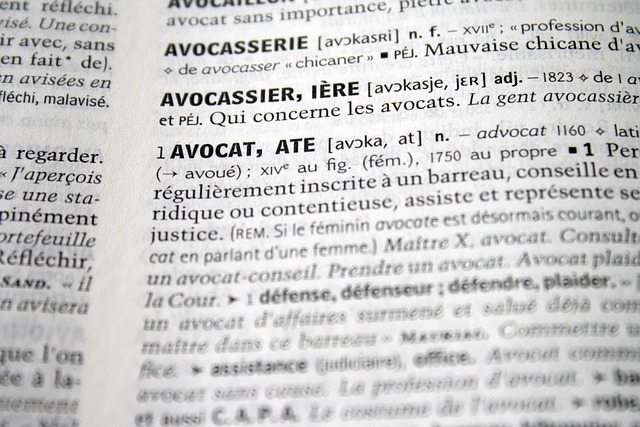Healthcare Compliance Experts play a vital role in guiding organizations through complex regulations, prioritizing patient safety and data privacy. Their key focus is preventing legal issues like libel cases, with a particular emphasis on understanding and adhering to the Statute of Limitations for Libel Cases (usually 1-2 years) to avoid substantial financial and reputational damage. These experts establish robust compliance programs that foster accountability, reduce risks, improve operational effectiveness, and ensure adherence to federal/state regulations. Proactive management of communications and patient records is crucial to mitigate libel risks and protect reputations in healthcare.
In the intricate landscape of healthcare, compliance experts play a pivotal role, acting as the guardians of ethical practices and legal adherence. These professionals navigate the complex web of regulations, ensuring institutions uphold the highest standards. This article delves into the multifaceted roles of healthcare compliance experts, offering insights into managing the Statute of Limitations for libel cases—a crucial aspect often overlooked. Additionally, it provides organizations with strategies to cultivate robust compliance expertise, fostering a culture of ethical integrity.
- The Role of Healthcare Compliance Experts: Ensuring Ethical Practices and Legal Adherence
- Navigating the Statute of Limitations for Libel Cases in Healthcare: A Comprehensive Guide
- Strategies and Best Practices for Healthcare Organizations to Foster Effective Compliance Expertise
The Role of Healthcare Compliance Experts: Ensuring Ethical Practices and Legal Adherence

Healthcare Compliance Experts play a pivotal role in ensuring that healthcare organizations operate within ethical boundaries and legal frameworks. They act as a safeguard against potential risks and liabilities, navigating complex regulatory landscapes to maintain the highest standards of patient care and data privacy. These experts are instrumental in preventing legal issues such as those related to the Statute of Limitations for Libel Cases, which can have significant financial and reputational consequences.
By implementing robust compliance programs, these professionals foster a culture of accountability within respective businesses. Their expertise enables healthcare institutions to achieve extraordinary results by mitigating risks, enhancing operational efficiency, and ensuring adherence to federal and state regulations across the country. This proactive approach not only protects organizations from legal repercussions but also promotes trust among patients and stakeholders.
Navigating the Statute of Limitations for Libel Cases in Healthcare: A Comprehensive Guide

Navigating the Statute of Limitations for Libel Cases in healthcare involves understanding a critical legal concept designed to ensure fairness and timely resolution. The Statute of Limitations sets a deadline—usually one to two years, though varying by jurisdiction—for individuals or entities to file civil lawsuits, including libel claims. This is particularly pertinent in high-stakes cases involving healthcare professionals where reputational damage can be significant.
Failure to bring a libel case within the prescribed Statute of Limitations may result in a complete dismissal of all charges. Given the potentially lengthy duration of medical treatments and associated disputes, healthcare providers and institutions must remain vigilant about potential libel claims. By proactively managing communications and ensuring patient records are accurate and transparent, they can mitigate risks and protect their reputations in the event of jury trials or other legal proceedings.
Strategies and Best Practices for Healthcare Organizations to Foster Effective Compliance Expertise

Healthcare organizations must adopt comprehensive strategies to foster effective compliance expertise and navigate the complex regulatory landscape. Firstly, establishing a robust compliance program involves implementing clear policies and procedures tailored to specific legal requirements. Regular training sessions for staff at all levels are essential to ensure everyone understands their roles and responsibilities in maintaining adherence to statutes like the Statute of Limitations for Libel Cases. By promoting a culture of compliance, organizations can create an environment where ethical practices become second nature.
Additionally, staying proactive is key to achieving extraordinary results. This includes regular audits, peer reviews, and mock investigations to identify potential gaps or vulnerabilities. Engaging with external experts and industry peers allows healthcare entities to stay abreast of changing regulations and best practices throughout all stages of the investigative and enforcement process. Such measures not only help in avoiding indictment but also ensure continuous improvement and enhanced patient safety.
In conclusion, healthcare compliance experts play a pivotal role in upholding ethical standards and legal adherence within the industry. By understanding and navigating the complexities of the Statute of Limitations for Libel Cases, these professionals empower healthcare organizations to mitigate risks effectively. Embracing strategic best practices ensures a robust culture of compliance, fostering trust and ensuring patient safety as the industry evolves.






